COMPARING M&A PROCEDURES IN VIETNAM WITH THAILAND, INDONESIA, AND MALAYSIA
Views: 1444
(7).png)
Introduction
Southeast Asia is one of the most dynamic regions for M&A activities, especially in the context of supply chain shifts and FDI attraction post-COVID-19. However, legal procedures, ownership restrictions, and tax systems vary significantly among countries, affecting market selection and deal structures. The following comparison provides investors with a quick overview of the key factors to consider when investing in Vietnam, Thailand, Indonesia, or Malaysia.
1. M&A Approval Time
-
Vietnam: M&A deals usually take at least 3-4 months due to the need for numerous registration procedures and approvals from state agencies. If the deal involves regulated sectors (telecom, education, banking, etc.), the process may take even longer.
-
Thailand: The process is quick and clear, usually taking 1-2 months if it does not fall under foreign investment restrictions.
-
Indonesia: M&A transactions tend to take longer due to involvement of multiple regulatory agencies and local governments, requiring thorough due diligence and approval.
-
Malaysia: The process is quite flexible and highly digitalized, with many documents being submitted online. M&A deals are generally processed quickly across most sectors.
2. Foreign Ownership Restrictions
-
Vietnam: Several sectors have restrictions on foreign ownership, including banking, telecom, logistics, and advertising.
-
Thailand: Foreign investment restrictions are still in place under the Foreign Investment Act, but the government is relaxing these restrictions to attract more FDI.
-
Indonesia: Indonesia has high ownership restrictions, particularly in strategic sectors such as finance, media, and real estate. Foreign investors must comply with the "Negative List."
-
Malaysia: Malaysia is the most open among these countries. Except for a few strategic sectors (such as defense and energy), most industries allow 100% foreign ownership.
3. Legal System
-
Vietnam: The legal framework is improving but still involves numerous administrative procedures, relying on different levels of authorities, and lacks full consistency between central and local governments.
-
Thailand: The legal system is relatively stable and predictable, with clearer, more transparent procedures compared to Vietnam and Indonesia.
-
Indonesia: The legal system is less transparent and frequently changes based on local government policies, which complicates the approval process.
-
Malaysia: Malaysia uses a Common Law system based on English law, which is clear, accessible, and offers strong investor protection.
4. Capital Gains Tax
-
Vietnam: Capital gains may be subject to various tax rates depending on the type of transaction and the parties involved.
-
Thailand: There is no separate capital gains tax. Instead, the income is taxed either as corporate income or personal income at a rate of 15% for foreign individuals.
-
Indonesia: Share transfer transactions are typically subject to a standard corporate tax rate of 25%, with additional transaction taxes ranging from 0.1-0.5% in certain sectors.
-
Malaysia: Malaysia will implement a Capital Gains Tax from 2024, imposing a 10% tax on unlisted share transfers. This rate may be reduced if there is a Double Tax Avoidance Agreement (DTA) in place.
5. Financial Reporting Standards
-
Vietnam: Vietnam uses VAS (Vietnamese Accounting Standards), which differ significantly from IFRS, requiring adjustments for international investors' assessments or audits.
-
Thailand: Thailand adopts IFRS or TFRS (Thai Financial Reporting Standards), which are compatible with international standards.
-
Indonesia: Indonesia uses its own Indonesian Financial Accounting Standards, which have significant differences from IFRS.
-
Malaysia: Malaysia fully adopts IFRS, making its system the most transparent and closest to international standards in the region.
6. M&A via SPV (Special Purpose Vehicle)
-
Vietnam: Investors may establish an SPV in Singapore or Hong Kong to facilitate M&A deals, taking advantage of benefits from DTA agreements and international financial centers.
-
Thailand: Offshore SPVs are commonly used in large M&A deals to optimize ownership structures.
-
Indonesia: SPVs are frequently used, but investors must comply with strict regulations due to tax risks and ownership restrictions.
-
Malaysia: SPVs are widely used, particularly in Labuan or Singapore, to enjoy tax advantages and flexibility in legal structures.
7. Conclusion
While Vietnam offers advantages in market size, labor costs, and growth speed, M&A procedures remain complex and influenced by an inconsistent administrative system. On the other hand, Malaysia and Thailand stand out for their stable legal frameworks, clear procedures, and fewer ownership barriers.
Understanding the differences in procedures, taxes, and legal systems helps investors:
-
Choose the right market for long-term goals,
-
Design an effective M&A structure and minimize risks,
-
Maximize tax and legal benefits in each country.
8. HOW CAN ALTAS ASSIST?
ALTAS LAW provides comprehensive legal, accounting, and tax services designed to support investors during this transition period:
-
Accounting & Tax Services: We offer accounting and tax services to help businesses manage the financial impacts of these reforms, including tax planning, reporting, and compliance.
-
Licensing & Regulatory Compliance: We will carefully review your current licenses and permits, advise on necessary amendments or renewals, and guide you through the process of obtaining new approvals. Our team will also ensure compliance with any regulatory changes.
Please contact us via email at contact@altas.vn to discuss how we can assist you in navigating these reforms successfully.
--
Prepared by:
Lawyer Partner at ALTAS Law - Mr. Le Quang Lam & Managing Director at ALTAS Accounting - Ms. Nguyen Nhac Thien An
Date: August 16, 2025
© 2025 ALTAS LAW. All rights reserved. Ownership: This document and its contents (the "Material") are proprietary resources owned exclusively by ALTAS LAW (i.e., ALTAS LAW, ALTAS CORP, and affiliated companies). Use of this Material does not create any contractual or attorney-client relationship between ALTAS LAW and any party. Disclaimer: All Material is for informational purposes only and may not reflect the latest legal provisions. All summaries of laws, regulations, and practices are subject to change. This Material is not provided as legal or professional advice for any specific issue. It is not intended to replace the detailed terms of any current laws, rules, regulations, or forms. Clients are advised to consult legal professionals before making decisions based on the information provided in this Material. ALTAS LAW and its editors and authors do not guarantee the accuracy of the Material and disclaim all responsibility for any actions taken based on the entire or any part of the Material. The Material may contain links to external websites, and external websites may link to the Material. ALTAS LAW is not responsible for the content or activities of any external website and disclaims all liability in relation to the content or activities of any external website. Note: Past results are not indicative of future outcomes, as each case is unique.









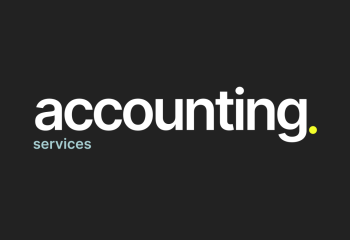
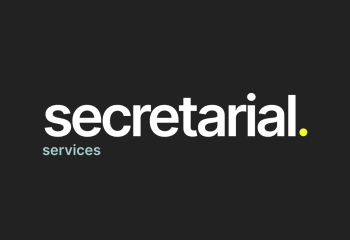
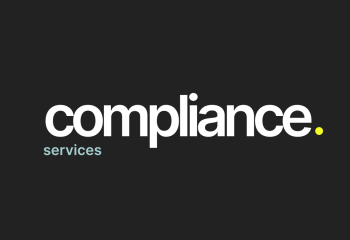


(7).png)
![[LEGAL NEWSLETTER – NOVEMBER 2024 ] CIRCULAR NO. 48/2024/TT-NHNN [LEGAL NEWSLETTER – NOVEMBER 2024 ] CIRCULAR NO. 48/2024/TT-NHNN](thumbs/210x144x1/upload/news/web-1666620014958786336308-16708409830151046155074-4017.jpg)
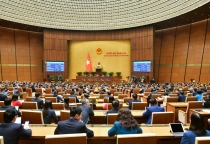
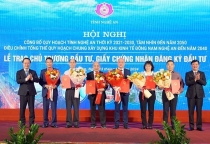
![[MARKET NEWS - NOVEMBER 2024] KEY CHANGES IN KARAOKE AND NIGHTCLUB BUSINESS OPERATIONS [MARKET NEWS - NOVEMBER 2024] KEY CHANGES IN KARAOKE AND NIGHTCLUB BUSINESS OPERATIONS](thumbs/210x144x1/upload/news/pho-di-bo-bui-vien-cover-5284.webp)







